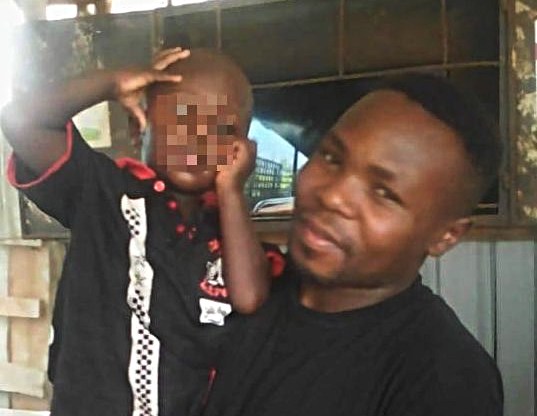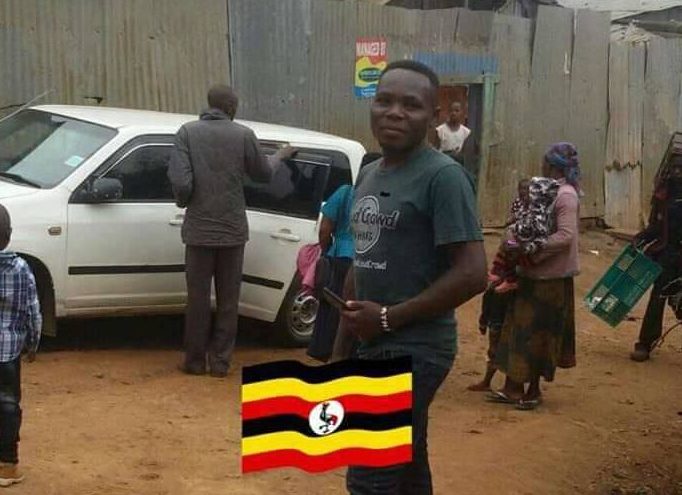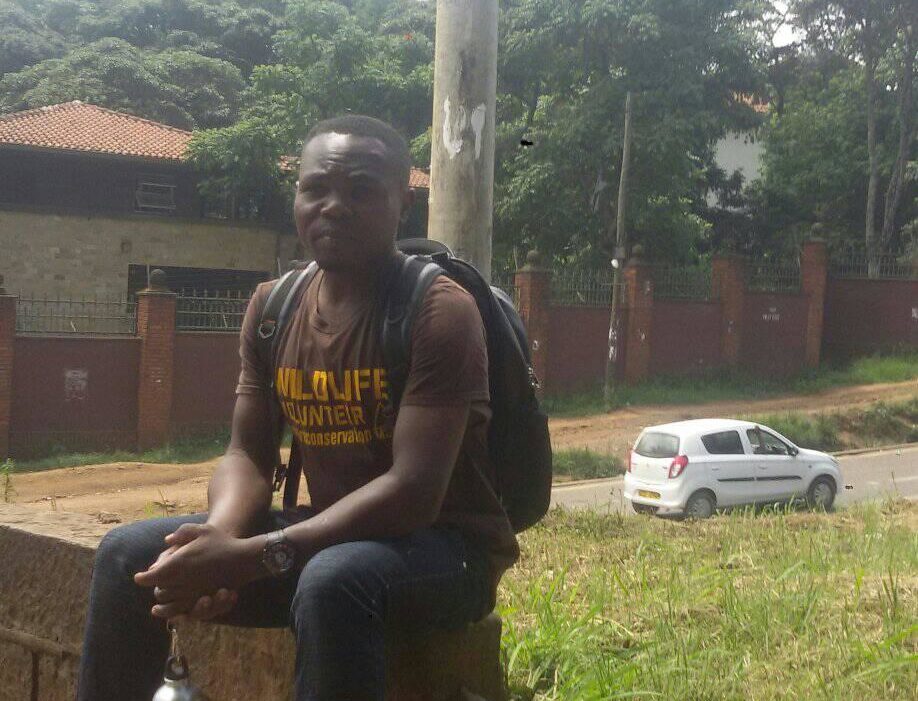Gay refugee and father-of-one found dead outside UN offices in apparent suicide after being left with nowhere to turn

Mweru Aneste, a proud gay man and father, was found dead outside the United Nations offices in Nairobi, Kenya. (Facebook)
A gay refugee was found dead Monday morning (April 13) outside the United Nations High Commissioner for Refugees office in Nairobi, Kenya.
Aneste Mwiru was one of more than two hundred LGBT+ asylum seekers who relocated from the Kakuma Refugee Camp to the capital city in 2019, activists told PinkNews.
But after struggling to score the vital financial assistance he needed to support his son in February, homeless and hungry, he began camping outside the UNCHR offices in the Westlands.
Shortly after he was found dead in a suspected suicide, stunning the local community and capturing what activists say is the pathos of those queer Ugandans who risk it all to flee persecution.
Guards told gay refugee to die ‘if he wanted to escape [his] problems’, activist claims.
When approaching the office to ask for food, guards informed him the office was shut until Tuesday.
Guards then allegedly “beat [him] seriously unconscious”, said Mbazira Moses, founder of Refugee Flag Kenya, an LGBT+ rights lobby group.
“When he gained consciousness again, he told the security men that he would rather die there where he is known, other than elsewhere.”

Mweru Aneste, homeless and jobless, was suffering with depression, according to his partner. (Facebook)
The 28-year-old was then told by private guards to die by suicide “if he wanted to escape the problems”, Moses claimed.
Mwiru suffered abrasions on his ankles and arms around the time of his death, photographs familiar to PinkNews showed.
His body was found around 10am by passersby, many of whom are a lifeline to refugees living in the streets who depend on handouts from locals.
Fellow migrants camped under a footbridge nearby jeered at the private and armed security offices patrolling the UNCHR offices, blaming them for the death of their friend as authorities transferred Mwiru’s body.
Gay refugee was severely depressed after losing job and funding.
Mwiru’s biography was one of relentless homophobic abuse and his devotion to his son.
He was routinely “beaten and injured” while staying in Kakuma, Moses said, making him one of many victims of a spectre of violence cast on the camp’s vulnerable LGBT+ community by homophobic locals who “never wanted them there”.
Mwiru was, according to United Nations officials, a Ugandan national recognised as a refugee by the Kenyan government.
But the UNHCR’s move to withdraw monthly stipends for refugees living in urban areas plunged his life into uncertainty. Such cutbacks were made as part of government policy, 76 Crimes reported.
‘If they wanted to confirm how desperate people are, let Mwiru be more than enough.’
Mwiru’s partner, Nathan Shimwe of Congo, said he was in the throes of depression after losing his job as the coronavirus pandemic steadily begins to seize the land-locked country.
“We had constantly alerted the UNHCR about the dangers and desperation the former Kakuma refugees were being subjected to by withdrawing the financial assistance they were being given,” Moses said.
“They were brought from there and now dumped with no program of what they can do to at least get food and accommodation.
“The frustrations among all of the remaining who get no assistance are so grave as confirmed by Mwiru’s suicide.
“If they wanted to confirm how desperate people are, let Mwiru be more than enough.
One death is too many to any humane person.
UNCHR confirmed in a statement issued Monday that the agency is closely following police investigations of the incident.
“We, at UNHCR, the UN Refugee Agency, are profoundly shocked and saddened by the tragic death and apparent suicide of a refugee today in Nairobi.
“Our thoughts and condolences are with his family and friends.
The statement continued: “UNHCR is concerned about the growing challenges faced by refugees and asylum-seekers as well as communities hosting them, in meeting their basic needs in the current difficult context.”
PinkNews has contacted UNCHR for further comment regarding the allegations made against its guards.
‘How many Ugandans do you want to die before you start listening to us?’
Among the many photographs of Mwiru are those of him smiling with friends. Others show him holding his son up high, eyes gleaming with pride.

Mweru Aneste was moved from Kakuma Refugee Camp in northern Kenya to Nairobi in 2019. (Facebook)
Yet, for many of Mwiru’s loved ones, photographs of his body will be how people remember him.
Graphic images of Mwiru’s death ricocheted across social media Monday, galvanising public attention to the personal stories of individual refugees, so often obscured by the noise of the, at times, caustic debates over migration in Kenya.
For Doreen Andrewz, assistant director of the Refugee Trans Initiative, Mwiru’s passing is a poignant reminder of the perilous journey migrants face in escaping the severe homophobia of Uganda.
“How many Ugandans do you want to die before you start listening to us,” she said.
“I am tired of death – this is not what we came for in this country. [Mwiru], forgive us all.”

